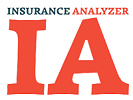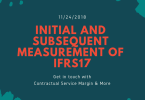The latest IFRS standard for the insurance contract accounting (formerly known as IFRS 4 Phase II, which is expected to be called IFRS 17) has been under the process of development for several years. But, the International Accounting Standards Board (IASB) are now finalizing the drafting of the final standard. For sure, a robust standard is needed since the existing IFRS 4 allows for many accounting policies that result in the lack of comparability within the insurance groups.
This IFRS 17 was released May 2017. Its effective date is 2020 or probably 20121. Indeed, the long lead duration is an indicator of the various complexities that are expected around implementation. This standard will be complex, and it will include some essential differences to the current accounting in both profit recognition and liability measurement.
There are parallels with Solvency II in Europe for which insurance companies have undergone significant implementation projects and have made great investments in processes and systems. Ideally, these and components of other present systems will be used as the starting point for the standard, IFRS 17. However, crucial differences between frameworks exist, particularly the contractual service margin concept that is under IFRS 17.
Insurers have been given relief from applying the IFRS 9 to the investment portfolios before adopting the latest insurance contracts standard. There is an anticipation that many insurers will apply the temporary exemption from the IFRS 9 adoption in order to bring into line the two standards. But, there remain similar disclosure requirements to put into consideration before then, apart from building the interaction between the standards into IFRS 17 planning.
Currently, the IASB is carrying out topic-based field experimentation using a special questionnaire which incorporates the drafting working from IFRS 17. This exercise will help in identifying the issues around the interpretation of the requirements & possible operational challenges that may arise when applying the requirements.
Major IFRS 17 challenges
Some insurers have started their IFRS 17 implementation strategy with some projects at various stages that range from initial gap analysis & project sizing all the way to Group-wide technical /systems & data impact assessments. Others have even started to consider systems design, and various challenges have emerged from projects done to date. The challenges include:
- Length of the implementation project
Some insurers are saying they will require more than three years basing on their impact evaluation work, and drawing parallels with some major projects, especially Solvency II.
- Decisions should be made around adherence to year-end reporting timetables
According to entities, it is most likely to be a challenge in meeting the current timetables because of the complexities of the IFRS 17. There are high chances that IFRS 17 will offer various policy options and choices not least use of OCI in managing profit & loss vitality and use of PAA short duration business. In selecting the preferred option or policy, it is paramount to take into account the effect on tax position. Many insurers who have started to evaluate these choices are realizing that the options are not as clear cut as they may have envisaged.
- IFRS 17 transition is most likely to provide an opportunity and change since the standard will allow different judgments, simplifications, and decisions that are made around CSM during transition might affect profit emergence over several subsequent years.
- Apparently, IFRS 17 might present demanding resource needs
Internally, there will be a necessity to increase finance, actuarial & risk management coordination. Externally, there will be limited expert resource pool to call upon, and early effort for securing suitable resources will be vital.
- Market expectations management
Analysts and investors have expressed their concerns that IFRS 17 proposal might have more complexities with more optionality compared to they had hoped for originally. In case the insurance business is to minimize its capital costs compared to other industries, then insurers should carefully consider the “IFRS 17 story“ before adoption and the major metrics that they will be applying in the new world.
- It is not only a technical issue
There is a finding that IFRS 17 will actually impact across business beyond finance, actuarial, and systems development sectors, such as product design & distribution. Also, there will be an impact on the position of cash tax, both on transition & ongoing tax profile. Therefore, groups might want to lobby for some special tax rules in order to handle the standard.
- Data is key
Insurers are realizing that they will need an essential change in the way data is collected, analyzed, and stored with IFRS 17 altering the emphasis from a prospective basis of analysis and introducing a more granular measurement level. The above is the information regarding the background of IFRS 17 and its greatest challenges.



